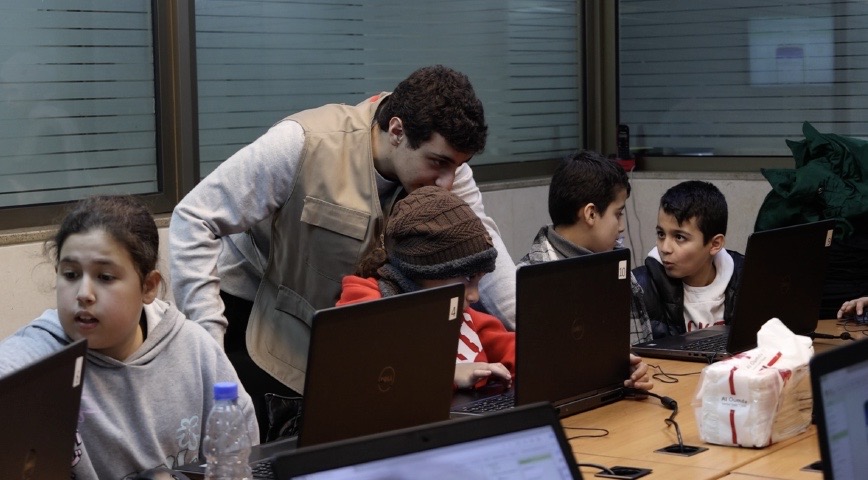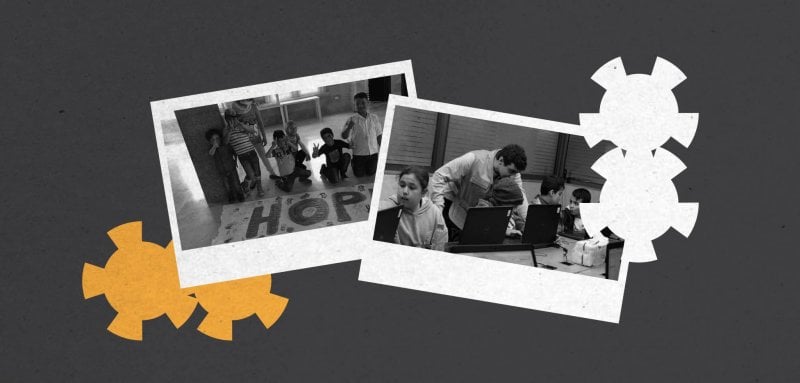Syrian refugee children in Lebanon are 50% less likely to have access to an internet-capable phone or device compared to their Lebanese counterparts. Additionally, 29% don’t own any kind of mobile device. It’s estimated that as many as 40% of Syrian school-aged children in Lebanon are not enrolled in school, and of those who are, only 10% advance to secondary education.
The Educational Crisis Facing Syrian Refugee Children
The educational disparity and lack of access to upward mobility are staggering. Without direct intervention, Syrian children face severe disadvantages compared to their Lebanese peers, living in extreme poverty and often forced into child labor or early marriage. The U.K.-based nonprofit Save the Children estimates that approximately 18,000 Syrian children are engaged in child labor in Lebanon, and Lebanese court statistics suggest that 6% are married. While the Lebanese government has made efforts to alleviate this crisis by integrating Syrian refugee children into its national school system, much more needs to be done.
 Elias Abou Chabkeh Street in Beirut at the Irshad and Islah headquarters; 2023. HOPE was hosting a computer training session for Syrian refugees aged 13 or younger, with its local Lebanese partner, Irshad and Islah.
Elias Abou Chabkeh Street in Beirut at the Irshad and Islah headquarters; 2023. HOPE was hosting a computer training session for Syrian refugees aged 13 or younger, with its local Lebanese partner, Irshad and Islah.
HOPE: Bridging the Gap with Technology
Many individuals and organizations, both within Lebanon and beyond, have worked tirelessly to improve the lives of Syrian refugee children. One such individual is Bassel Ojjeh, a 17-year-old Syrian living in London with a passion for technology and programming.
“If someone has access to the internet and a laptop, they can access as much information as they want. The borders of the digital economy are virtual, so anyone can participate, even if they are in a refugee camp,” said 17-year-old Bassel Ojjeh.
Growing up in London, Ojjeh felt a sense of shame about his Syrian heritage. His grandparents were forced to flee Syria in 2011 due to the civil war, and for many around him, Syria was synonymous with conflict and destruction. This personal connection to the crisis fueled his desire to make a difference. He researched organizations helping Syrian refugee children but was dissatisfied with many of them. “Education was not being prioritized,” Ojjeh said. Moreover, high administrative costs meant only a fraction of donations reached those in need. Determined to make a more direct impact, Ojjeh founded HOPE, an initiative focused on addressing the educational gap and improving access to technology for Syrian refugee children in Lebanon.
HOPE works with local partners, including schools and community centers, to provide technology and digital literacy to refugee children. “If someone has access to the internet and a laptop, they can access as much information as they want,” Ojjeh said. HOPE is built on the belief that education, enabled by technology, is key to empowering refugee children and giving them the tools they need to rebuild their lives and communities. “The borders of the digital economy are virtual, so anyone can participate, even if they are in a refugee camp,” he added.
Ojjeh’s vision extends beyond digital literacy alone. “I see digital literacy as the intermediate step toward financial independence. My ultimate goal is not to be needed; to help our refugees live comfortably on their own income, with no external help whatsoever,” he explained.
Challenges, Impact, and the Road Ahead
While HOPE has made a significant impact, it faces challenges due to limited resources. For instance, Ojjeh had to make difficult decisions about how to allocate funds: Should he invest in laptops to create a computer lab for digital learning, or contribute toward purchasing a bus for a German partner organization? In the end, he chose the laptops, recognizing that they would have a broader and more lasting impact on children's education, despite the appeal of the bus.
Save the Children estimates that approximately 18,000 Syrian children are engaged in child labor in Lebanon, and Lebanese court statistics suggest that 6% are married. While the Lebanese government has made efforts to alleviate this crisis by integrating Syrian refugee children into its national school system, much more needs to be done.
In Lebanon, where the Syrian refugee crisis is deeply entrenched, even the most well-intentioned efforts face logistical and financial constraints. HOPE’s success lies in its focus on education and technology, but scaling this work remains a challenge in a region where resources are stretched thin and the needs are vast. Education is a fundamental right, but for too many refugee children, it remains out of reach. Without urgent and sustained action, a generation of Syrian children risks being left behind, trapped in cycles of poverty and displacement.
HOPE offers a powerful example of how focused, community-driven solutions can help. Addressing the educational disparity is not just about meeting immediate needs — it’s about reshaping the future of Syria itself by giving displaced children the knowledge and skills they need to rebuild their lives and communities. Initiatives like HOPE are vital, but they cannot do it alone.
Raseef22 is a not for profit entity. Our focus is on quality journalism. Every contribution to the NasRaseef membership goes directly towards journalism production. We stand independent, not accepting corporate sponsorships, sponsored content or political funding.
Support our mission to keep Raseef22 available to all readers by clicking here!
Interested in writing with us? Check our pitch process here!





